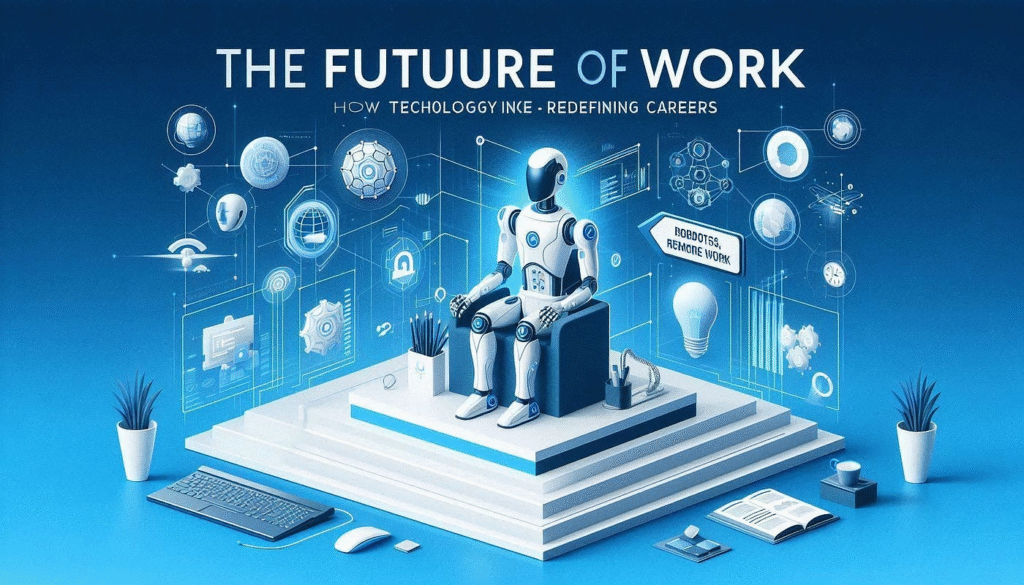The Future of Work: How Technology is Redefining Modern Careers

Technology is transforming how we work, where we work, and even what we define as “work.” From automation and artificial intelligence to remote collaboration and digital entrepreneurship, the future of work is being reshaped before our eyes — and businesses, employees, and job seekers must adapt quickly to thrive.
1. Remote Work and the Digital Workplace
The COVID-19 pandemic accelerated the adoption of remote work technologies such as Zoom, Slack, and Microsoft Teams. Even after the pandemic, hybrid and remote models have remained the norm, allowing employees to work from anywhere while maintaining productivity. Cloud computing and virtual private networks (VPNs) have made this shift seamless and secure.
2. Rise of Automation and AI-Powered Tools
Artificial Intelligence (AI) and automation are taking over repetitive and data-driven tasks, allowing employees to focus on creative and strategic roles. In fields like finance, marketing, and customer service, chatbots and AI assistants are improving efficiency and accuracy. This trend emphasizes the growing demand for digital literacy and adaptability.
3. Demand for New Digital Skills
As technology evolves, new career opportunities are emerging — from data analysis and cybersecurity to digital marketing and software engineering. Businesses are increasingly prioritizing tech skills when hiring, and employees who invest in continuous learning will remain valuable in this ever-changing landscape.
4. Gig Economy and Freelancing Opportunities
Platforms like Upwork, Fiverr, and Toptal have redefined traditional employment structures. Professionals can now offer their expertise globally without geographical limitations. For African youth especially, this presents immense opportunities for financial independence and global exposure.
5. The Role of Businesses in Preparing for the Future
Forward-thinking businesses like I4 Tech understand that investing in technology and talent development is essential. Providing IT training, creating flexible work policies, and embracing digital transformation ensures organizations remain competitive and innovative in the global economy.
Conclusion
The future of work is already here — flexible, tech-driven, and skill-oriented. Individuals and organizations must embrace this evolution by adapting, learning, and leveraging technology to unlock new opportunities. Those who prepare today will lead tomorrow.


